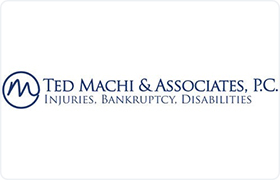Desoto Collection Lawyer, Texas
Sponsored Law Firm
-
 x
x

Click For More Info:
-
Machi & Associates, P.C.
1521 North Cooper Street Suite 550 Arlington, TX 76011» view mapAccident & Injury, Bankruptcy, Social Secuirty We Fight So You Don't Have To
Our professional team of attorneys and staff provide the experience and expertise needed to effectively handle your case.
800-804-0771
Michael Raymond Cramer
Business, Business Organization, Collection, Construction, Civil & Human Rights
Mr. Cramer grew up in the piney woods of Mt. Vernon, East Texas before moving to Mesquite, where he graduated from High School in 1986. Following high... (more)
Bill Venegoni
Age Discrimination, Americans with Disabilities Act , Mesothelioma, Collection
Status: In Good Standing
Diana S. Weitzel
Adoption, Alimony & Spousal Support, Child Support, Collection
Status: In Good Standing
FREE CONSULTATION
CONTACTPamela L. Wilder
Adoption, Alimony & Spousal Support, Child Support, Collection
Status: In Good Standing
FREE CONSULTATION
CONTACTAaron Bayliss Michelsohn
Employment, Divorce, Insurance, Collection
Status: In Good Standing Licensed: 12 Years
Anjulie Meera Ponce
Health Care, Securities, Collection, Accident & Injury
Status: In Good Standing Licensed: 13 Years
Ari Benjamin Rafilson
Lawsuit, Intellectual Property, Insurance, Collection
Status: In Good Standing Licensed: 17 Years
 Ted Machi Arlington, TX
Ted Machi Arlington, TX Practice AreasExpertise
Practice AreasExpertise
